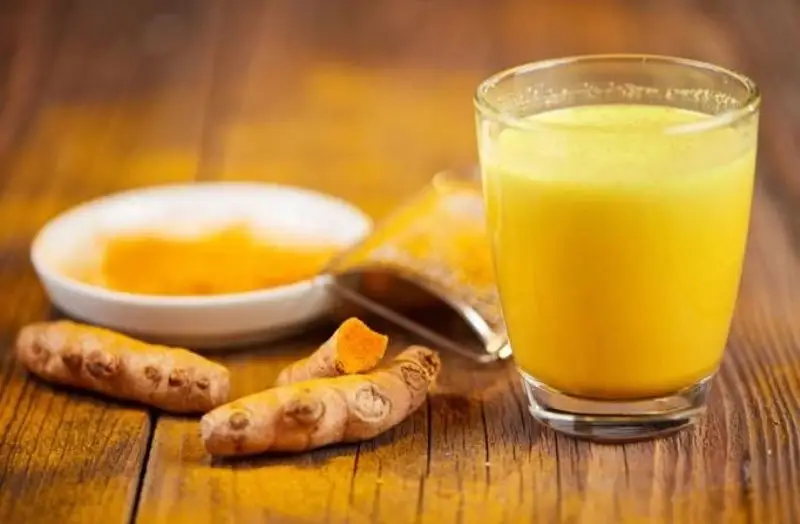Turmeric and Viruses
Turmeric and Viruses
Turmeric, Known as ‘Golden spice’ or ‘Earthy herb of Sun’ is a perennial herbaceous plant of ginger family (Zingiberaceae).
It has strong associations with sociocultural life of Indian people since vedic period, but recently, during this Covid pandemic, it gains more importance in our life because many of us believes that it can help us fighting the virus.
So, now the questions are- Is turmeric powder really anti-viral? How much do we need to take daily? Which is better to consume- Turmeric powder or Raw turmeric roots?
Lets discuss ------

(Picture courtesy:Google)
Geographical Distribution of the plant:
Many Species of curcumin are economically valuable, the most important being Curcuma longa , known as turmeric commercially. The greatest diversity of the species occurs in India, Mayanmer, and Thailand and extends to Korea, China, Australia and the islands of the South Pacific.
Active ingredients of turmeric:
Turmeric powder contains many natural ingredients ,like - Vitamin C, Calcium , Flavonoids, Iron, Fibre , Niacin ,Potassium etc; But the curcuminoids are known to have certain pharmacological activities. Generally raw turmeric contains about 2% - 3% Curcumin, the most important among curcuminoids.
Anti viral activity of Curcumin :
In recent scientific studies (Antiviral potential of curcumin by Dony Mathew and Wei li(2018), Curcumin inhibits cell binding of Zika and Chikungunia virus by Bryan C. Mounce Pasteur institute(2017), Curcumin’s antiviral and antibacterial activity ware investigated and it was shown that its acts against many viral pathogens, like- Influenza virus,Hepatitis C virus, HIV etc. Despite these studies,curcumin has not yet been approved as a therapeutic antiviral agent.
Here is a list of antiviral activity of curcumin against different viruses-
VIRUS | ANTI-VIRAL ACTIVITY |
Chikungunya virus | Inhibits entry of the virus |
Dengue virus | Inhibits entry of the virus and also inhibits viral particle production |
Hepatitis B virus | Inhibits viral replication and ccc DNA |
HIV | Inhibits different viral protein production |
Human papillomavirus | Inhibits viral protein production |
Rift Valley fever virus | Inhibits viral replication |
Zika virus | Inhibits entry of the virus |
1. Relief of arthritis:
Curcumin helps in anti inflammatory process, it removes free radicals in our bodies which are responsible to damage cells, major cause of arthritis.(James W daily(2016) PMC5003001)
2. Helps in digestion:
Raw turmeric improves digestion by stimulating gall bladder to generate bile.
3. Wound healing:
Curcumin stimulates the production of the growth factors involves in wound healing.
4. As anti cancer agent:
Studies shows turmeric can suppress various Cell-signaling pathways to inhibit proliferation.
It can also reduce the harmful effects of anti cancer drugs.
5. As anti inflammatory agent:
Chronic inflammations has been linked to various disorders like-Cancers,heart disease, Alzheimer’s etc. Curcumin helps in treating inflammation and reducing the risk of those disorders.
6. Curcumin reduces Cholesterol level, improves blood pressure and fights inflammation- improves health of heart and brain.
How much we need to take daily:
If we want to use turmeric as a drug, then we can take 2.5-3 teaspoons of fresh turmeric daily.
Actually, if we want to get anti-inflammatory effect then we need 500 mg-1000 mg of curcumin daily.
A teaspoon of turmeric contains 150-200 mg of curcumin(roughly estimated)
But the quantity varies depending source of turmeric.
Turmeric powder or Turmeric roots - which one is better?
Dried turmeric is more widely used but the fresh root contains far more nutrients than powder, many get lost when it converted into powder.
How to use?

(Picture courtesy:Google)
Turmeric powder is usually used as a spice in our cuisines but there are variety of delicious ways to use it with different kinds of food--
1. Golden milk
2. Mango lassi mousse
3. Overnight Oats with Cashews, seeds and turmeric
4. Add a good amount of turmeric in kitchdi
5. Puda-style tacos
Or simply eat Turmeric roots with honey or Jaggery(Gur).
Search the Delicious recipes in google 😋and stay safe and healthy.
(The data and evidence presented in this post are experimental, not yet approved by approval authorities.To establish curcumin as a drug more study and clinical trial needed. Curcumin shows no toxic effects and contains not only curcuminoids but also various helpful compounds like Vitamin C, Irons etc, it is established as a ayurvedic compound and risk free for use)
Very much informative.
ReplyDeleteThank you.
Deleteits not surprising that turmeric has not been approved as therapy. cos detailed clinical trials and statistical analysis of those results seem to be missing as of now. nor is anything conclusion known about mechanisms of action. any way, many plants have antiviral compounds, probably part of the plant nonspecific immunity.
ReplyDeleteYes, more study required to establish the facts, also more efficient methods required for extraction of biochemicals from plants (for large scale extraction in minimum cost ) and trial studies, right now natural compounds like curcumin shows no toxic effects when used but the current drugs based on chemicals may harm the patient. I think we must try and explore more about natural compounds.
DeleteAnd thanks a lot sir, You are the inspiration for writing, and the best guide.
Very much informative.
ReplyDeleteFrom Anindita Mandal
Thanks a lot.
Delete